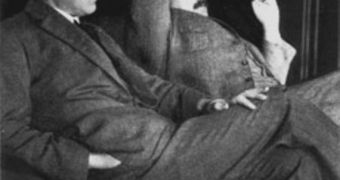The renowned debate between famous physicists Albert Einstein and Niels Bohr was the subject of fascination for many at the time, because it represented a clash between two completely different methods of understanding physics and viewing the world. While in Einstein's classical physics there are no uncertainties, and everything is predetermined, in Bohr's world everything revolves around chance, and the behavior of matter at the small scale is not well defined. For decades, physicists have been wondering as to which of the two was correct, and new evidence seems to indicate that Bohr's point of view had the most merit, PhysOrg reports.
The new investigation, which was conducted by experts at the Complutense University of Madrid Department of Mathematical Analysis, in cooperation with University of Copenhagen (UC) Niels Bohr Institute Theoretical Quantum Physics Professor Michael M. Wolf, shows the limitations in Einstein's theory. The team also demonstrated that no theory on a specific subject could be more complete than the one provided by quantum mechanics, without entering direct opposition with one of classical physics' primary principles, namely that everything happened locally. It could be argued that there is great irony here, seeing how Einstein could not get his much-desired, complete description of reality without breaking his own theory.
“Our findings not only close the past discussion. They also tell us something about theories of the future – how theories that go beyond quantum mechanics should be. It makes no sense to look for theories that are more deterministic, that is to say more certain than quantum mechanics. If we stick to Einstein’s principles, we have to accept a lot of fuzziness,” Wolf says. Einstein tried over the years, and especially in 1927 – during the fifth Solvay Conference in Brussels – to create experiments to disprove Bohr's new idea, of quantum mechanics. However, Bohr managed to move past all objections, showing gaps in Einstein's reasonings and conclusions.
At this point in time, Bohr's ideas and theories are widely accepted as true. The ideas set forth by Einstein and other physicists to fight quantum mechanics were disproved in either direct or theoretical experiments. Physicists have now reached a point where they can say for certain that a more complete theory on the nature of things, such as the one Einstein, B. Podolsky and N. Rosen proposed, contradicts either experiments, or the German physicist's own theory. The recent study, which is entirely based on advanced, theoretical mathematical calculations, shows that there is no possible theory that can be more complete than quantum mechanics, and still incomplete enough to agree with Einstein's predictions.

 14 DAY TRIAL //
14 DAY TRIAL //